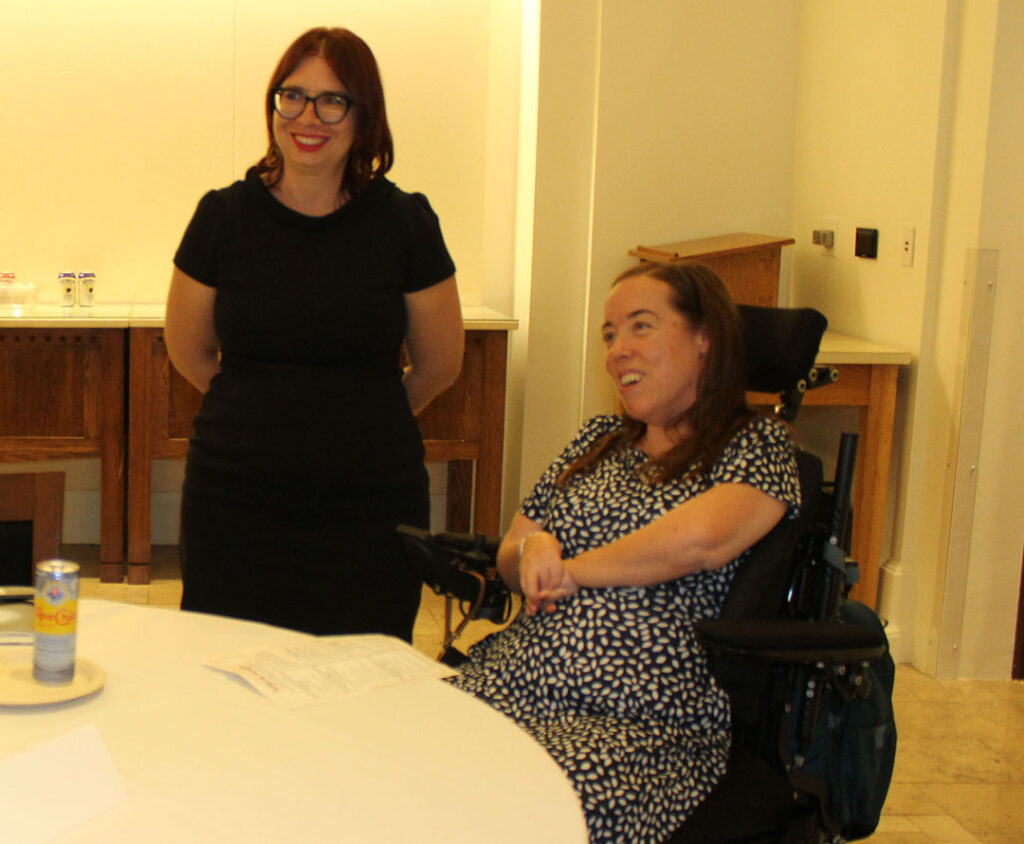On Monday, September 23, 2024, the Rapoport Center and the Sissy Farenthold Reproductive Justice Defense Project hosted Dr. Robyn Powell (Law, Stetson University) as the first speaker of the Fall 2024 Colloquium on “Reproductive Justice, Criminal Law, and the Carceral State.” Powell, who teaches and writes about disability law, presented her recently published article in the Georgetown Law Journal titled, “Forced to Bear, Denied to Rear: The Cruelty of Dobbs for Disabled People.” Dr. Julie Minich (English and Mexican American & Latina/o Studies, UT) responded to her talk. Watch a recording of the talk.
Powell explained the impact of the 2022 Dobbs decision on disabled people through the lens of disability reproductive justice, a framework that draws on both disability justice and reproductive justice to examine and challenge the ways in which reproductive oppression is compounded on disabled people. This framework shows that the Dobbs decision forced disabled people into a bind – many states now prohibit abortion, thus forcing them to bear children, yet those same states do not allow them to raise those children. Powell described instances in which the State denies disabled people the right to raise their own children, one of the key tenets of reproductive justice. She also detailed how the family policing system (also known as the child welfare system) disproportionately removes children from disabled parents, based on a presumption that disabled people are inherently incompetent parents. Doctors today often dissuade disabled people from becoming parents and use their authority to scare disabled people and their caretakers by discussing the “dangers” of disabled parenting, a remnant from the unsettling history of doctors forcibly sterilizing disabled people. Additionally, there is little state support, both physically, and financially, to help disabled people with child-rearing, which often results in the state initiating child removal proceedings. Once they institute child removal proceedings, the family policing system rarely accommodates disabled people, making it difficult for them to comply with state requirements and likely that they will lose their children.
Powell’s talk further expanded on how and why disabled people are more likely to be affected by the Dobbsdecision – they are often not given adequate sex education or access to contraception due to prevailing ableist beliefs that disabled people do not and should not have sex. They are also often economically marginalized due to inadequate state disability benefits, making it difficult for them to travel to a different state to get an abortion.
Powell concluded by highlighting specific legislation that can help secure disability rights. But her message goes far beyond enshrining certain rights in the law. She asserts that disability reproductive justice entails creating a space for disabled people to choose to have or not have children, and to be able to parent their children with dignity. It also requires listening to disabled people and letting them make decisions about their own body. “Disabled people have always lived by this philosophy, ‘Nothing about us without us,’ and that is so critical,” Powell said. “We cannot be making these laws and policies without actually including people with disabilities.”

